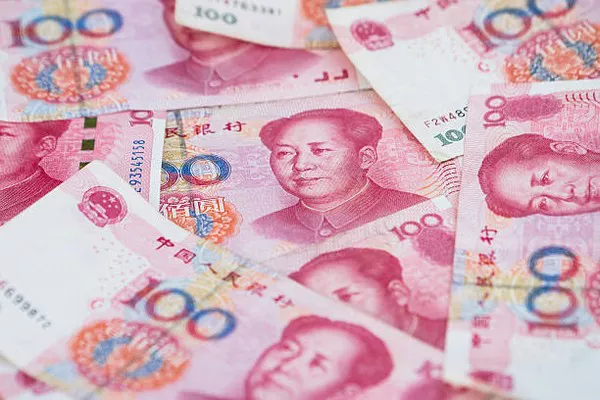In the complex realm of global economics, few phenomena evoke as much attention and concern as currency fluctuations. Among these, the weakening of a nation’s currency, such as the yuan, often triggers widespread discussions and debates. The yuan, the official currency of the People’s Republic of China, holds a pivotal position in the world economy. Understanding why a weak yuan is deemed detrimental requires delving into its multifaceted implications, encompassing both domestic and international spheres.
The Basics: What is the Yuan and Why Does it Matter?
The yuan, denoted as CNY or RMB, serves as the primary unit of exchange in the world’s second-largest economy, China. As an integral component of international trade, the yuan’s value influences various aspects of global commerce, ranging from import and export dynamics to investment decisions. China’s economic policies, coupled with its central bank’s interventions, significantly shape the yuan’s valuation, making it susceptible to fluctuations.
Economic Imbalances and Competitiveness
A weakening yuan can exacerbate economic imbalances within and beyond China’s borders. Primarily, it affects the country’s competitiveness in international markets. When the yuan depreciates relative to other currencies, Chinese exports become more affordable for foreign buyers. While this may initially boost export volumes, it can lead to trade imbalances and tensions, particularly with trading partners who perceive a weakened yuan as unfair competition.
Moreover, a sustained decline in the yuan’s value can erode the purchasing power of Chinese consumers. Imported goods become more expensive, contributing to inflationary pressures domestically. This, in turn, can constrain domestic consumption, potentially hindering economic growth and stability.
Financial Market Volatility and Capital Flight Risks
Currency depreciation can trigger volatility in financial markets, both domestically and globally. Investors may react to a weakening yuan by reallocating their assets, seeking safer havens or higher returns elsewhere. Such capital outflows can strain China’s financial system and destabilize global markets, especially if they occur abruptly or in large volumes.
Furthermore, a weak yuan may heighten concerns about capital flight, where investors move their funds out of the country to avoid further depreciation. This poses challenges for China’s policymakers, who must strike a delicate balance between maintaining exchange rate stability and preserving capital market integrity.
External Debt and Financial Vulnerabilities
China’s exposure to external debt denominated in foreign currencies amplifies the risks associated with a weak yuan. As the yuan depreciates, the real value of China’s foreign debt obligations increases, potentially straining the country’s financial resilience. Managing external debt becomes more challenging, especially if revenues generated in yuan are insufficient to service these obligations.
Additionally, a weak yuan can affect the creditworthiness of Chinese borrowers, particularly corporations and financial institutions with significant foreign currency liabilities. This can lead to higher borrowing costs and reduced access to international capital markets, impeding investment and growth prospects.
Geopolitical Ramifications and Policy Responses
The valuation of the yuan is not merely an economic issue but also carries geopolitical significance. Perceptions of currency manipulation or deliberate devaluation can strain diplomatic relations and ignite trade disputes. Countries experiencing trade deficits with China may retaliate by imposing tariffs or other trade barriers, escalating tensions and potentially triggering broader geopolitical conflicts.
In response to a weakening yuan, policymakers in China and other affected nations may implement various measures to mitigate its adverse effects. These can include interventions in currency markets, adjustments to monetary policy, and diplomatic negotiations to address trade imbalances. However, such responses often entail trade-offs and may not fully alleviate the underlying economic pressures.
Long-term Implications for Economic Stability
Beyond immediate concerns, the long-term implications of a weak yuan extend to economic stability and sustainability. Persistent currency depreciation can undermine investor confidence, leading to reduced foreign direct investment and capital inflows. This can impede China’s efforts to transition to a more consumption-driven and innovation-led economy, as it relies heavily on stable investment inflows for infrastructure development and technological advancement.
Moreover, a weak yuan may exacerbate income inequality within China, as the costs of imported goods rise disproportionately for low and middle-income households. This can fuel social discontent and undermine the government’s efforts to promote inclusive growth and social stability.
See Also Will Chinese yuan replace US dollar?
Conclusion
In conclusion, the ramifications of a weak yuan reverberate across multiple dimensions, encompassing economic, financial, geopolitical, and social spheres. While currency fluctuations are inevitable in the interconnected global economy, policymakers must remain vigilant to mitigate the adverse effects of currency depreciation. Balancing the imperative for export competitiveness with the need for exchange rate stability and sustainable growth poses formidable challenges. Ultimately, addressing the root causes of currency weakness requires concerted efforts at both the national and international levels, guided by prudence, cooperation, and a shared commitment to fostering economic prosperity for all.


